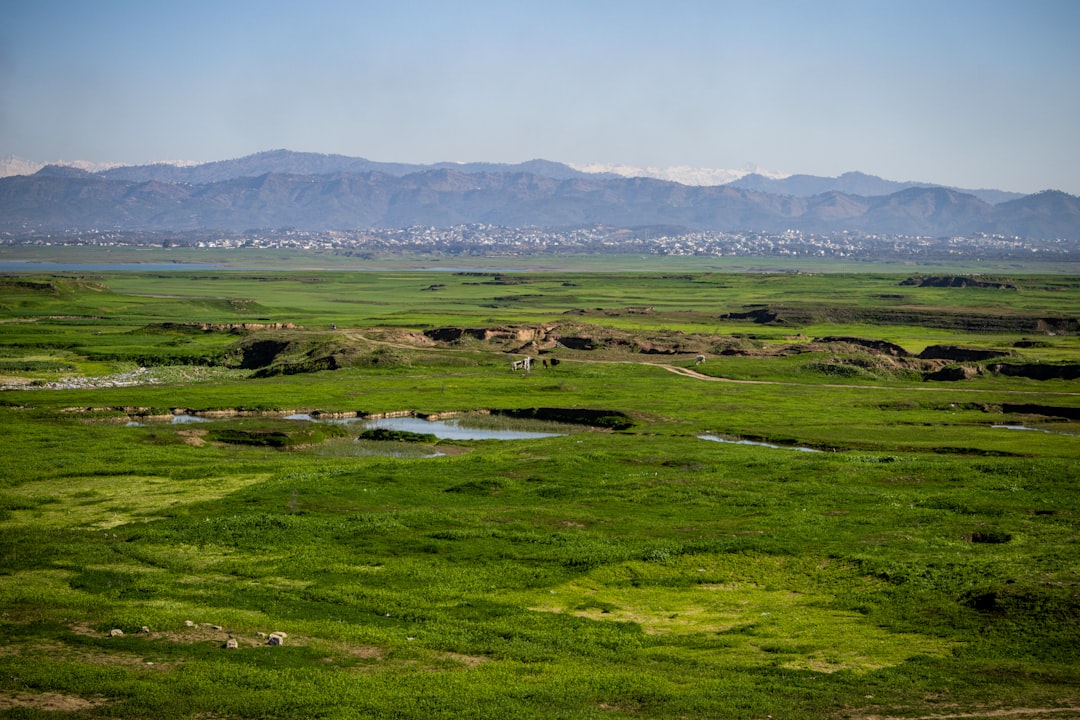

First things first, let’s recognize the untapped potential of your property. Vacant land in Pennsylvania isn't just a plot of dirt; it's a blank canvas eager to be transformed into a buyer's dream. But before visions of dollar signs start dancing in your head, you’ve gotta do some groundwork. Are you aware of what makes your land valuable? It could be its natural resources, its proximity to expanding urban areas, or maybe its ideal suitability for development.
It’s not just about selling land; it’s about selling possibility. To a farmer, your land could be the next breadbasket. To a developer, it could be the future site of a bustling residential neighborhood. Your job is to identify who your land appeals to and what potential it has. This is not a one-size-fits-all situation. A tailored approach always triumphs, so consider the strengths and unique selling points of your plot.
The key here is research and networking. Get to know the local market trends and talk to professionals who can provide insight into your land’s potential. There might be gold in them thar hills—or at least the opportunity for someone else’s golden dream.
Picking the right spot is like choosing a life partner – it has to be the right fit for you and your plans. Are you all about solitude? Then steer clear of busy areas and look for something more secluded. Dreaming of starting a business? You'll want a location that’s accesible and zoned for commercial use.
Don't forget to consider future development, too. That out-of-the-way spot that's perfect for a cozy cabin now might be on the next major developer’s radar. Check out local township plans and keep an future prospects in mind. If your vision aligns with the area's trajectory, you're on the right track.
And if you're thinking connections and commute, reflect on proximity to highways and utilities. You don’t want your idyllic plot to turn into a headache because you can’t get water or electricity. Dig into the local infrastructure before falling head over heels for a piece of land.
Zoning laws can be the make or break of a land sale in Pennsylvania. These regulations dictate what can and can't be done with your property, and believe me, you need to understand them inside out. Why? Because a buyer will want to know what they're dealing with. Is your land zoned for residential use, commercial, or agricultural? Each classification holds its own set of guidelines and potential.
Make sure you’re armed with knowledge about the local zoning ordinances. This could mean the difference between a quick sale and a property that lingers on the market longer than necessary. That's not to say that restrictions are always a bad thing. Sometimes, zoning can actually increase your land's value, especially if it's in line with what's in demand in your area. So, become best buddies with your local zoning office, and you’ll be two steps ahead of the game.
Don’t forget to mention any possibilty of variances or land use permits that might allow for expanded use. Buyers love options, and the more flexible the usage of your land, the wider the net you can cast to snag that perfect buyer.


Now that we’ve got the technical bits covered, let’s get to the fun part—dressing up your land for the big dance. Isn't it true that we all wanna make a good first impression? Your vacant land is no different. You want to showcase it in its best light so that buyers can see its full potential.
Start with the basics: clean up any debris, maintain the natural foliage to an aesthetically pleasing level, and ensure easy accessibility to the property. Got a gorgeous view of the Susquehanna? Make sure it's visible. A stand of mature trees on the property? Highlight their beauty and potential value. If there’s anything unique or particularly attractive about your land, now’s the time to flaunt it.
Professional photographs and videos taken from the ground and, if possible, aerial shots with a drone can really set your land apart. These visuals aren't just fluff—they're selling tools that can attract a wider audience. Use them to create a compelling story about your land that resonates with potential buyers’ aspirations.
The price tag you attach to your land can either invite a flood of interested buyers or lead to the sound of crickets. Price it too high, and you’ll watch the sun set many times over on your unsold acreage. Too low, and you might be kicking yourself as opportunity and profits pass you by.
A competitive market analysis is your best friend when setting the price. Look at comparable sales in your area, understand market conditions, and consider the attributes of your land. Don’t go it alone, though. An experienced local real estate agent can be invaluable in helping you nail the right price. They eat market trends for breakfast, lunch, and dinner, so they’ll know the sweet spot for your slice of Pennsylvania.
But also bear in mind, the market can fluctuate quicker than a deer jumping over your property line. Stay flexible and be willing to adjust your price if necessary to resonate with market demands and buyer interest.


So you’ve got the land, you’ve got the price, but now you need the eyeballs. Enter marketing; it's like telling the world, “Hey, look at this amazing land I’ve got!” Utilize a mix of online and offline channels to get maximum exposure. List on high-traffic real estate websites, and don’t shy away from social media. Platforms like Facebook and Instagram can significantly increase your reach.
Real estate signage isn't old hat either; a for sale sign on your land can catch the attention of local passersby who might just be your future buyers. And let's not forget the power of the printed word – listing your property in local newspapers and real estate magazines can help too.
By casting a wide net, you're not just waiting for the right buyer to stumble upon your property; you’re actively seeking them out. It’s about being proactive and tapping into every resource at your disposal because, let’s face it, in a world of endless options, visibility is king.
The moment has arrived: You’ve got an offer on the table, and it's time to close the deal. Breathe a sigh of relief, but don’t lose focus now. This is where all your hard work pays off, or gets tripped up at the finish line. Make sure your paperwork is in order, from property disclosures to sale agreements, and engage a trusted real estate attorney or title company to oversee the closing process. They’ll ensure that the transaction sticks to the letter of the law and that you and the buyer are well taken care of.
Communication is key—always keep lines open between you and the buyer. Be transparent, honest, and prompt in your responses. This builds trust and can prevent minor issues from escalating into deal-breakers. And when all is signed and sealed, don't just disappear; a good seller sticks around to ensure a smooth transition.
Closing a land sale can feel like a marathon, but with the right preparation and professional guidance, it can be more like a victory lap. Focus on making the process as smooth as possible, and you'll leave both sides of the deal with smiles on their faces—and hopefully a tidy profit in your pocket.
Selling vacant land in Pennsylvania doesn't have to be intimidating. By understanding the potential of your property, mastering the zoning laws, maximizing market appeal, setting the right price, utilizing effective marketing strategies, and facilitating a smooth closing process, you're well on your way to a successful sale. Remember, every piece of land has a story, and with the right narrative, your vacant lot will find its destined buyer.

Yes, but any outstanding property taxes will need to be settled at closing from the proceeds of the sale.
You can get a professional appraisal, compare recent sales of similar properties in your area, or consult with a real estate agent specializing in land sales.
Necessary documents include the deed, property tax records, and any agreements related to easements or restrictions.
You can list your property on online marketplaces, contact local real estate investors, or use specialized services that connect sellers with cash buyers.
The essential documents include the deed, property tax receipts, land survey, and any existing agreements or restrictions on the property.